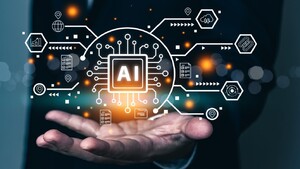Blog Information
- Posted By : The AI Surf
- Posted On : Jun 04, 2024
- Views : 30
- Category : Technology
- Description : Artificial Intelligence (AI) has been making waves in various industries, and healthcare is no exception. With the advancement of technology, AI is revolutionizing the way we approach healthcare and improving patient outcomes.
- Location : Wells Branch Pkwy, Austin, Texas 78728, USA
Overview
Artificial Intelligence (AI) has been making waves in various industries, and healthcare is no exception. With the advancement of technology, AI is revolutionizing the way we approach healthcare and improving patient outcomes. From streamlining administrative tasks to enhancing medical diagnosis, AI is transforming the healthcare industry in unprecedented ways. In this blog post, we’ll explore four ways AI is revolutionizing healthcare, with a focus on the best AI tools being used in the industry.
1) Medical Imaging and Diagnostics
One of the most significant ways AI is revolutionizing healthcare is through medical imaging and diagnostics. AI-powered tools can analyze medical images, such as X-rays, MRIs, and CT scans, with incredible accuracy and speed. This not only reduces the workload for healthcare professionals but also helps in early detection and accurate diagnosis of diseases. One of the best AI tools in this category is the Google DeepMind project, which uses AI algorithms to detect diabetic retinopathy, a leading cause of blindness.
2) Predictive Analytics
Another way AI is transforming healthcare is through predictive analytics. AI-powered tools can analyze vast amounts of patient data, including medical records, lab results, and lifestyle information, to identify patterns and predict potential health risks. This allows healthcare professionals to intervene early and provide personalized care to patients, reducing the risk of chronic diseases. One of the best AI tools in this category is IBM Watson, which uses machine learning algorithms to predict the risk of diseases such as diabetes, heart disease, and cancer.
3) Virtual Assistants
AI-powered virtual assistants, such as Siri, Alexa, and Google Assistant, have already made their way into our daily lives. But they are also making a significant impact in healthcare. These virtual assistants can help patients schedule appointments, refill prescriptions, and even provide basic medical advice. They also help healthcare professionals by automating administrative tasks, allowing them to focus more on patient care. One of the best AI tools in this category is Babylon Health, which uses AI to provide personalized health advice to patients through a chatbot.
Also Read: AI Code Generators
4) Drug Discovery and Development
Developing new drugs is a time-consuming and expensive process. AI is changing that by speeding up the drug discovery and development process. AI-powered tools can analyze vast amounts of data and identify potential drug candidates with higher accuracy and efficiency. This not only reduces the time and cost of drug development but also increases the success rate of clinical trials.
